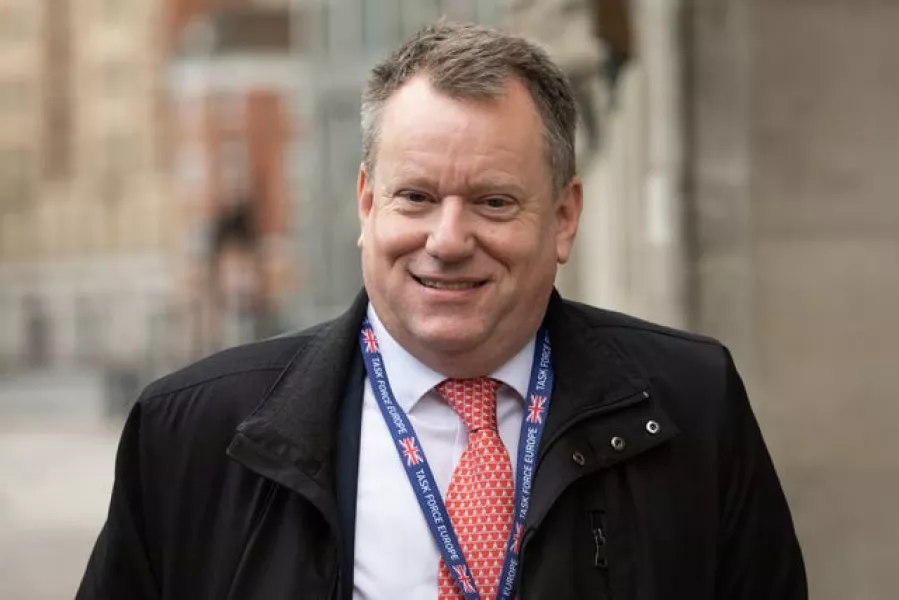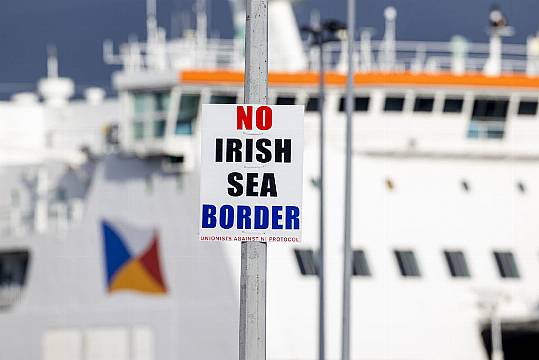The European Union and Britain are mounting a fresh attempt to resolve problems over post-Brexit trading arrangements for Northern Ireland.
British Brexit minister David Frost is travelling to Brussels for talks with European Commission vice-president Maros Sefcovic, as they attempt to iron out differences over the Northern Ireland Protocol.
The Protocol has been blamed as one of the factors behind the recent upsurge of violence in loyalist areas amid concerns in those communities it has weakened their place in the United Kingdom.

Under the terms of the Protocol, goods moving from the rest of the UK to Northern Ireland may be subject to checks.
The measures are intended to protect the EU single market while maintaining an open land border between the North and the Republic, in line with the Good Friday peace process.
However, critics have warned that the way it has been implemented has given rise to renewed sectarian tensions, at the same time as hampering the free flow of goods within the UK.
Meanwhile, relations between London and Brussels have been further strained after the EU announced last month it was taking legal action in response to a unilateral decision by the UK to extend a series of “grace periods” intended to ease the introduction of the new controls.
Ahead of Thursday evening’s meeting between Mr Frost and Mr Sefcovic, an EU spokesman said they would “take stock of ongoing technical work” on the protocol.
🇪🇺🇬🇧 @MarosSefcovic will have an informal meeting with @DavidGHFrost in Brussels on Thursday to take stock of ongoing technical work on the Protocol on Ireland / Northern Ireland and to provide a political steer for both teams on outstanding issues.
— Daniel Ferrie 🇪🇺 (@DanielFerrie) April 14, 2021
A UK government spokesman said there were still “significant differences” which needed to be resolved if they were to rebuild confidence in the agreement among communities in Northern Ireland.
“This meeting is part of our ongoing engagement with the EU to work through the outstanding issues with the protocol, in order to restore confidence on the ground, reflect the needs of communities and respect all dimensions of the Belfast Good Friday Agreement,” the spokesman said.
“The discussions so far have been constructive but there are still significant differences that need to be resolved.
“Both the UK and EU are continuing to engage with business, civil society and other stakeholders in Northern Ireland to understand the issues they are facing.”
Parliament vote
Meanwhile, the European Parliament’s foreign affairs and trade committees will vote on Thursday on the post-Brexit trade deal, but no date has yet been set for a full plenary vote to ratify the agreement.
The Trade and Co-operation Agreement, reached by Boris Johnson with Brussels on Christmas Eve, has been in place provisionally since the start of the year.
The UK agreed to extend the provisional application until the end of April, but a date has still not been set for MEPs to approve it as they remain concerned about the implementation of the earlier Withdrawal Agreement.
Downing Street said it had agreed the April extension and expected the EU “to complete their processes to this timeline”.







